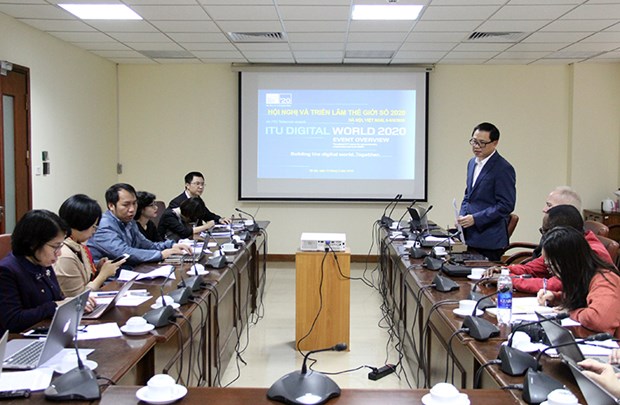In 2000s, the time of 2.0 web, Vietnam’s digital product ecosystem arose with a series of products, from social networks (tamtay, yume.vn), entertainment (ClipTV, Nhacso,net, nhaccuatui), search engine (socbay, xalo, bamboo), payment (nganluong, baokim), and e-commerce websites (chodientu, vatgia).

FPT, the Vietnamese largest IT group, also launched digital products in the Visky project, namely Vimua (e-wallet), Vitalk (OTT Messenger), ViKim and ViMusic.
These are the first generation of the Vietnamese digital product ecosystem.
However, only a few names still exist, such as VC Corp’s ads, Zing MP3 (VNG) and Nhaccuatui (NCT). With the failure of Vietnamese products, the digital product market was dominated by foreign products.
| Vietnam has experienced two periods of digital product development. Developing a digital ecosystem plays an important role in promoting sustainable socio-economic development. |
An expert commented that the failure of the Vietnamese first-generation ecosystem of was the same in other countries: dotcom bubbles burst and only good products could exist.
The problem was that many products generated in that period were an imitation of the products of large corporations around the world.
Meanwhile, international companies providing across-border services, with powerful financial and technological capability, such as Facebook, Youtube, Yahoo Messenger and Google, took away all Vietnamese users.
The second period of the Vietnamese digital ecosystem began in 2010. The number of ‘make in Vietnam’ digital products has been increasing rapidly, covering all fields, from e-commerce (Tiki, Sendo), fintech (MoMo, VnPay, ZaloPay, Tima), ride hailing (be), delivery service (giaohangnhanh, giaohangtietkiem), OTT messaging (Zalo), travel (Vntrip, Luxstay), abd education (Topica, Funix. There are also some operating systems (BOS on BPhone, VOS on Vsmart phones), antivirus software (BKAV, CMC Internet Security), security solutions (CyRadar, CMC Cyber Security, and social networks (Gapo, Lotus).
The typical characteristic of this period is the shift to mobile internet platform with the boom of smartphone and 3G and 4G networks. Vietnam-made products, such as Tiki, Sendo (e-commerce), Zalo (OTT messaging, social network), and Coc Coc (browser, search engine) can compete equally with foreign ones.
Vietnam has witnessed the explosion of startups operating in many fields of social life. There is still no success story like Grab or Shopee, but there are many potential ‘stars’, including Sendo, which has received investment of $51 million, and VNLIFE, the holding company of VnPay, where investors have committed $200 million.
Vietnam’s firms face challenges as they have to compete directly with gigantic multinational groups from the US and China. However, experts said the stiff competition helps create new models and new creative firms, benefiting Vietnamese users and generatibg a healthy ICT industry.
Lan Anh

Thousands to attend ITU Digital World 2020 in Hanoi
Thousands of delegates from telecoms and IT firms and State management agencies from more than 100 countries and territories worldwide will attend ITU Digital World 2020 (DW20), slated for September 6-9 in Hanoi.

100 million people, 100,000 digital technology firms and 30% of GDP
Vietnam strives to have at least 100,000 digital technology firms by 2030. It is expected that the digital economy would make up 30 percent of GDP by that time.
 Vietnam has experienced two periods of digital product development. Developing a digital ecosystem plays an important role in promoting sustainable socio-economic development.
Vietnam has experienced two periods of digital product development. Developing a digital ecosystem plays an important role in promoting sustainable socio-economic development.